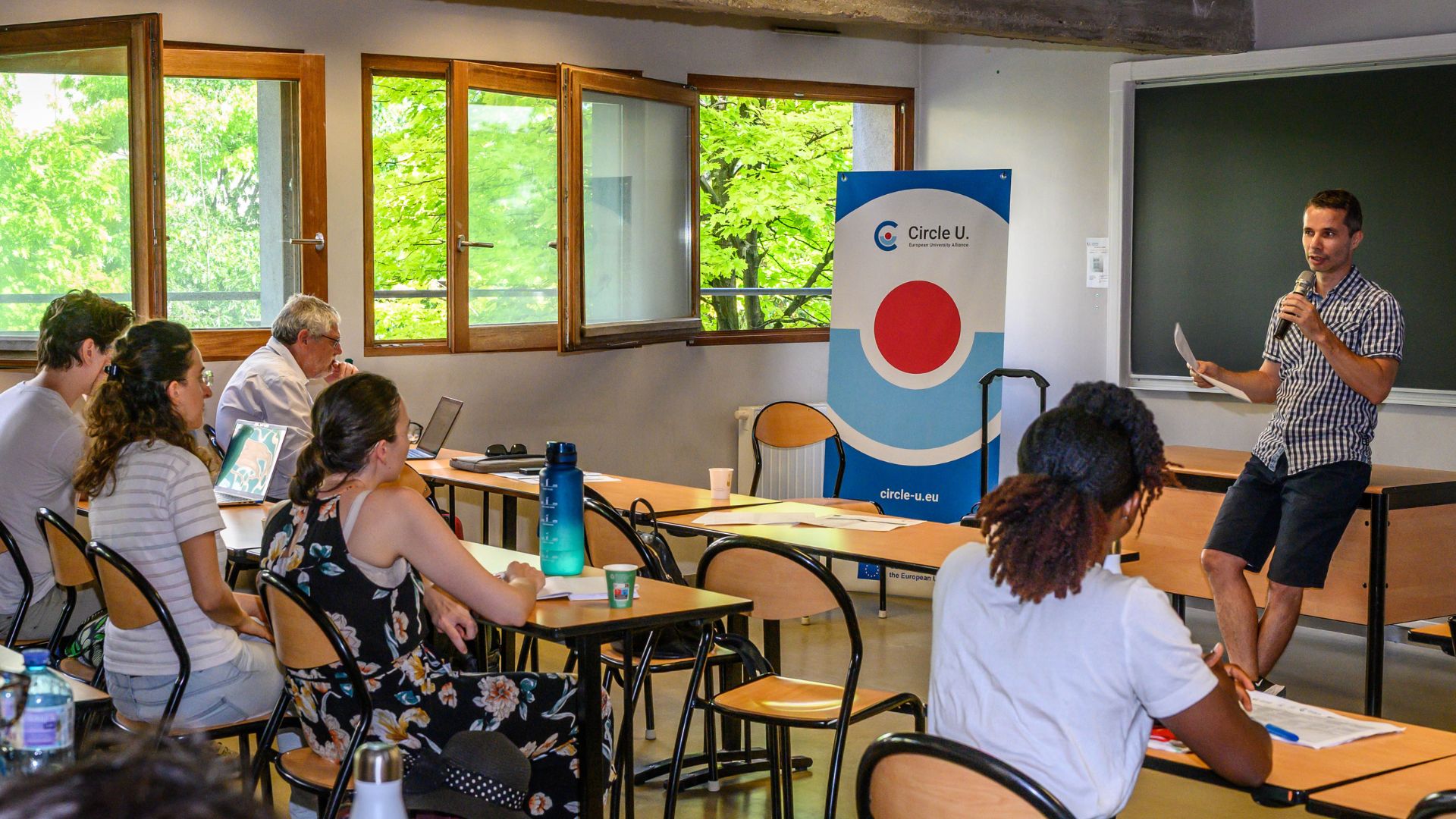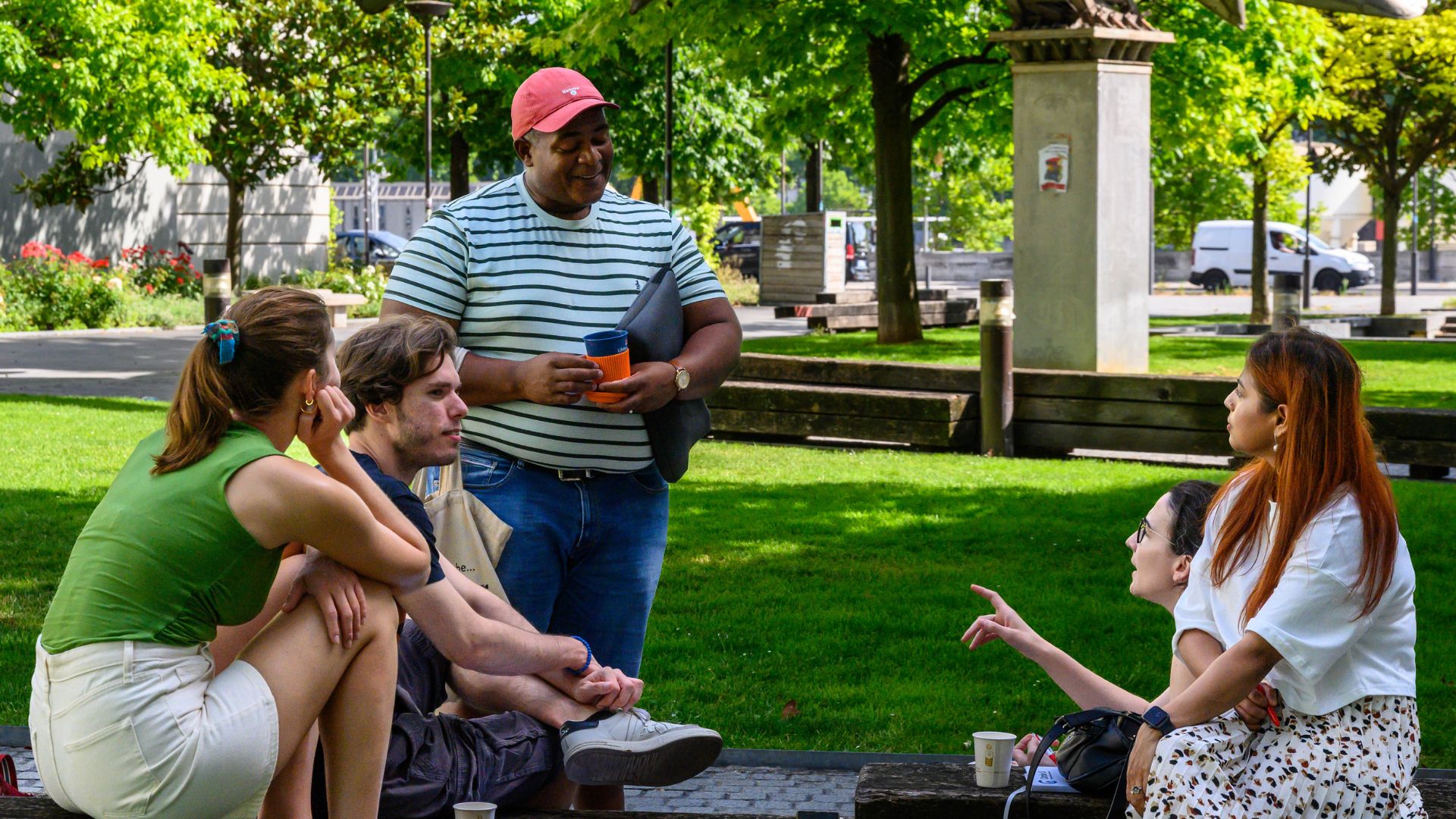ECTS
120 crédits
Niveau d'études visé
BAC +5 (niveau 7)
Durée
2 ans
Faculté
Faculté des Sciences
Langue des enseignements
Anglais
Présentation
General cog-SUP organization
The master’s student must register to one of the tracks. These tracks ensure the acquisition of genuine expertise in the concepts, methods, and techniques specific to each discipline, enhancing the clarity of skills associated with the diploma. The program establishes a common cultural foundation from the first year (M1) through a core curriculum and introductory courses to the different disciplines. In the second year (M2), the majority of courses are fully interdisciplinary and open to students from all tracks. Our goal is to cultivate cognitivists equipped with both robust disciplinary expertise and a broad interdisciplinary culture, essential elements for fostering meaningful collaboration across disciplines.
Specific to the track Cognitive Neuroscience
The central question addressed in the cog-SUP cognitive neuroscience track is the link between the biological activity of the nervous system and cognitive and mental activity. In addition to the master’s core curriculum, students in this track acquire a solid grasp of concepts and methods in experimental psychology, which is essential for experimentation in cognitive neuroscience, a solid grasp of concepts and methods in neuropsychology (the study of cognitive deficits in relation to neural lesions or pathologies), and advanced mastery of the full range of imaging and recording techniques used in cognitive neuroscience, from electrophysiology to functional MRI. The curriculum is primarily focused on human cognition but also provides an opportunity to explore approaches using animal models.
Beyond mastering the methods, the topics cover a very wide range of cognitive functions, encompassing their normal, pathological and developmental aspects. Students complete a research internship in the laboratory during both the first (M1) and second (M2) years of the program. In M1, the internship is carried out on a weekly basis (with a minimum of one day per week over one semester). In M2, it takes place throughout the entire second semester, enabling opportunities for internships abroad.
On completion of this program, students will be able to understand and interpret the scientific literature in cognitive neuroscience, carry out a literature review, develop an experimental protocol, acquire and analyze neuroimaging data and write a scientific article. These skills mainly pave the way for pursuing a PhD, but can also be put to good use in other career paths where a mastery of cognitive neuroscience and scientific methods are required (public administrations and companies or the private sector).
Admission
Modalités de candidature
Droits de scolarité
National tuition fees are set annually by the Ministry of Higher Education and Research. They are supplemented by compulsory and optional contributions, depending on the student's individual situation.
Contacts
- Secrétariat pédagogique
Dernière mise à jour le 4 décembre 2024
A lire aussi
À l’occasion de la Semaine nationale des Cordées de la réussite 2026, l’Université Paris Cité réaffirme son engagement en faveur de la démocratisation de l’accès à l’enseignement supérieur à travers des actions concrètes, innovantes et ancrées dans les territoires.
Étudiantes et étudiants de l’Université Paris Cité, nous vous donnons rendez-vous le jeudi 19 mars 2026 pour la 2ᵉ édition de cet événement annuel dédié à l’emploi, aux stages et à l’alternance. Près de 30 recruteurs seront présents pour vous proposer des opportunités concrètes et des conseils personnalisés afin de faciliter votre insertion professionnelle. Nouveauté cette année : le Forum des métiers de la transition écologique et de la solidarité vous invitera à réfléchir aux enjeux de l’engagement écologique et solidaire dans le monde du travail au travers de conférence, ateliers et tables rondes.
Vous étudiez à l’Université Paris Cité et vous souhaitez profiter de vos vacances d’été pour renforcer votre CV tout en découvrant un nouveau pays ? Notre université est membre de l’alliance européenne Circle U. et vous permet, à travers son campus ouvert, de candidater gratuitement aux écoles d’été organisées chaque année. Plusieurs thématiques transverses sont abordées comme la Santé Globale, le Climat, la Démocratie ou le Multilinguisme par exemple. Les candidatures sont ouvertes jusqu’au 28 février, renseignez-vous !
Vous êtes doctorant ou doctorante à l’Université Paris Cité et vous souhaitez étendre votre réseau et vos connaissances en Santé Globale ? L’alliance européenne Circle U. vous invite à participer à la nouvelle édition de son école d’été « New avenues for Global Health » qui aura lieu du 6 au 11 juillet 2026 dans les locaux de notre université ! Les candidatures sont acceptées jusqu’au 28 février.







